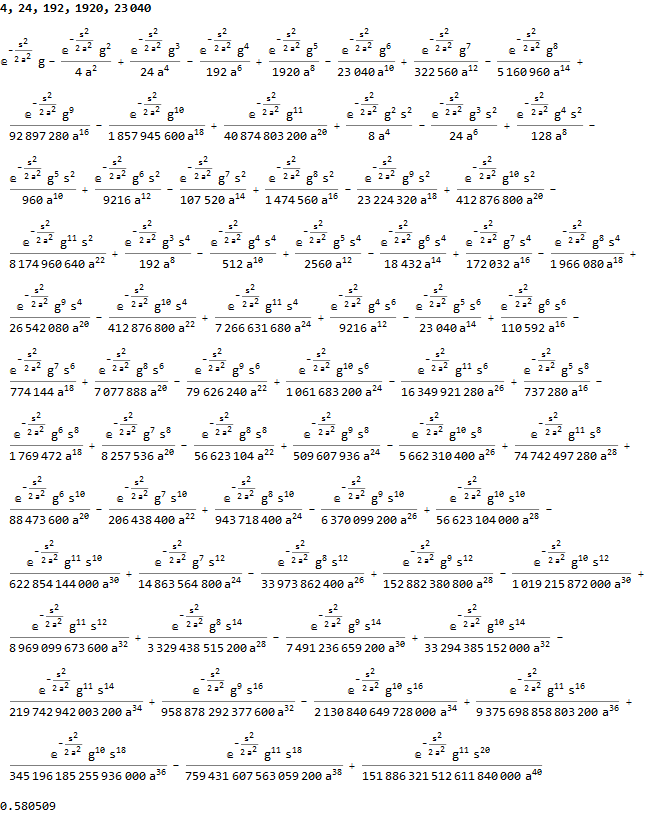Hi,
You might also look into the following reference:
\> Wolfram Functions: Bessel.
\>\> Product Integrals
\>\>\> Power Function
\>\>\> Exponential Function
A lot of integrals are already written down, usually in terms of a linear argument. I agree with Blinder, you may want to start by changing variables:
$\sqrt{x}=y$.
Although, it's also useful to look at the series expansion:
Bessel Series Expansion
As it is an even function, the integrand should expand in whole powers of
$x$. Then it's possible to integrate term by term,
Integrate[ Normal[Series[(Exp[-(x + s^2)/(2*a^2)])*(BesselI[0,
Sqrt[x]*s/a^2]), {x, 0, 10}]], {x, 0, g}]
N[% /. {a -> 1, s -> 2, g -> 3}]

Depending on the limit
$g$, this is an okay method numerically. It also lends some insight in terms of symbols. The functional part has a reliable lexicographic ordering, so we just need to figure out sequence or sequences of denominators. It's useful to compare with OEIS, for example: A002866, and A187735 which appear correct to a factor for cases with
$s^0$ and
$s^2$ .
If you get stuck with transforms, it can help to calculate a few coefficients.
Brad